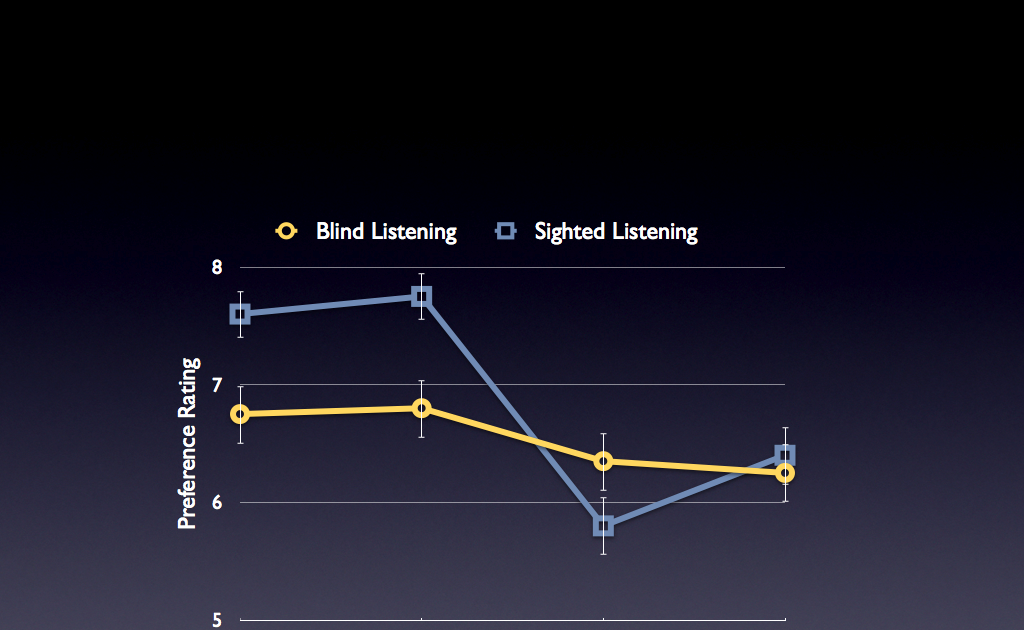Expectation Bias is a subjective phenomenon arising out of Cognitive Dissonance. The latter is psychological conflict which arises because of the reward anticipated after an Instrumental/Operant decision. Beliefs or understandings are shifted post hoc to fit the decision.
The driver of all conditioning is the reward. Stereotypically we audiophiles think of cables and the like. But these mental processes happen in all domains of human existence. How much more beautiful a person becomes once we have decided upon marriage.
The "reverse" type you envisage is perfectly plausible, but really would be an instance where the belief or understanding "no difference" was generated to justify a less obvious reward. Examples might be the money remaining in your bank account the result of not buying something. Or being right (an unfortunately pervasive human disposition) on an audio forum.
I think I'd disagree somewhat with that "reward-based" characterization of cognitive bias effects, even perhaps with regard to "expectation bias."
It seems to me "bias" is better construed more broadly as a range of perceptual errors - which arise from the way our brain works in trying to understand reality - continuous with all sorts of perceptual biases like optical or audible illusions. Presented with the checkerboard shadow illusion we will helplessly interpret some squares as brighter than others, even though they are identical in brightness (objectively). It's a form of "expectation bias" because it's an error based on "expectations" our perceptual system brings to the table. It's an outcome of a certain heuristic; not one based from desire/reward. Nor is it a case of "Cognitive dissonance." The brain just accepts the perception of one square being brighter than another. Cognitive dissonance may come in once someone shows you (by covering the shadow effect) that the squares are actually the same brightness. Now you have two strong, adjecent, competing believes for your mind to resolve. But the actual perceptual error is not based on nor causes "cognitive dissonance." And insofar as you believe any perception true, and don't have some other strong belief challenging it, cognitive dissoance seems the wrong phenemonon to adduce. It's just error.
This seems to be the case for many of our cognitive bias effects. Some of our errors may be driven by some desire/reward expectations, but far from all. It can just be little glitches and heuristics in how our brain works.
As for the Expectation Effect, if someone buys an expensive cable expecting it to change the sound, and then through this bias effect perceives a change, he isn't confronted with having to work out cognitive dissonance: just the opposite! Dissonance would arise insofar as his experience confounded his expectations.
One doesn't have to have some emotional investment in "reward" for even expectation effects to occur, for instance the "reward" of a cable sounding different or the "reward" of saving money because it didn't. It can just be as simple as a perceptual error based on the same kind of "glitch" that produces optical or audible illusions.
"I switched something" can make you perceive a change "something changed" even if you weren't expecting it.

